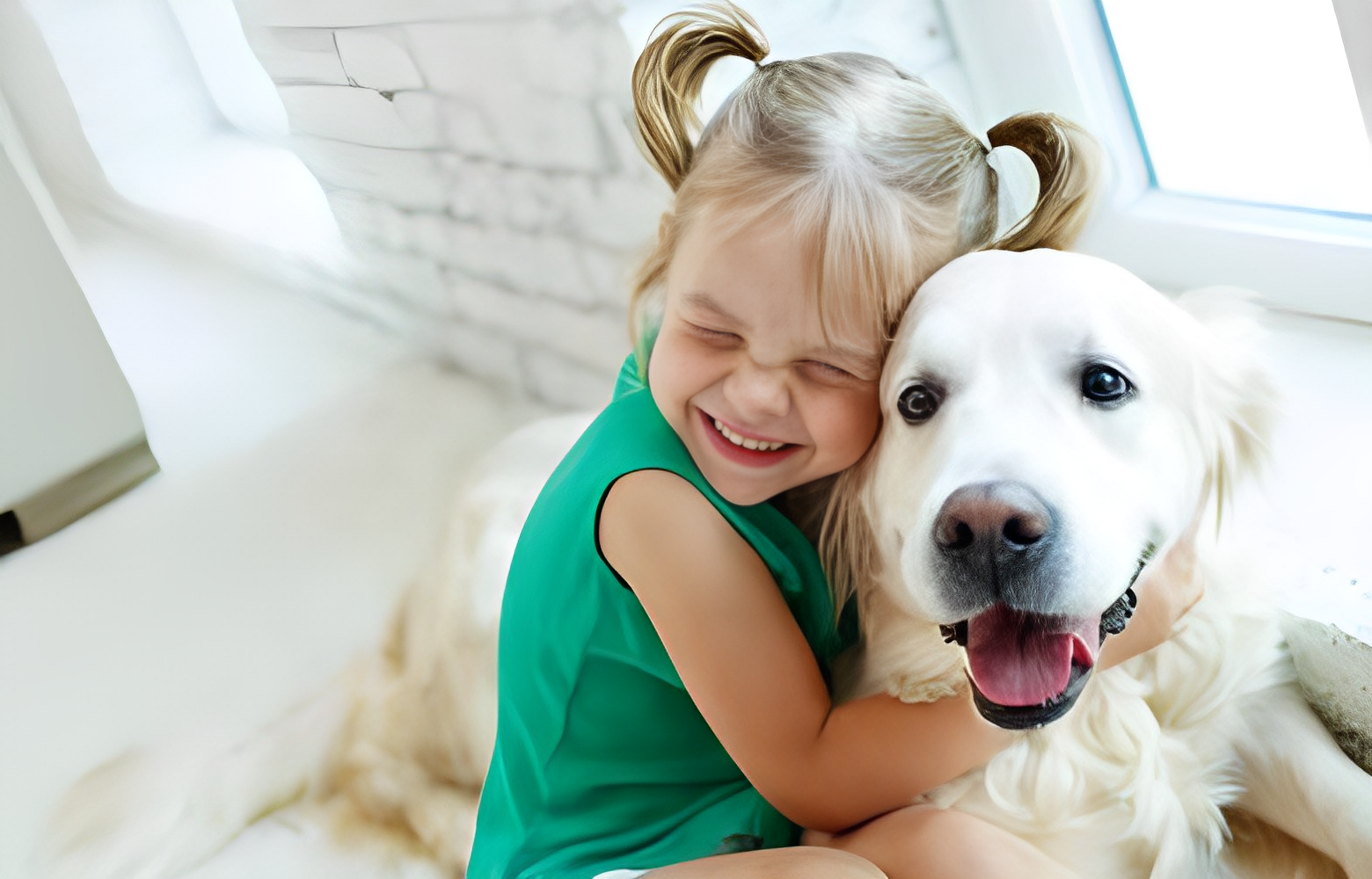The indescribable bond between a child and their canine companion is a testament to the profound impact that growing up with dogs can have on a child’s life. Beyond the simple joys of having a fluffy playmate, the experience of sharing your formative years with a dog imparts invaluable lessons and cultivates a love that shapes a child’s character. In this exploration, pet barn will delve into the multifaceted benefits of raising kids alongside dogs, examining the diverse lessons learned and the enduring love that defines this unique relationship.
1. Companionship and Emotional Development:
The companionship offered by a dog to a child is nothing short of magical. Dogs are exceptional listeners, providing a safe space for children to express themselves without fear of judgment. This emotional connection serves as a cornerstone for a child’s development, fostering empathy, compassion, and a profound understanding of relationships. As kids navigate the ups and downs of childhood, the unwavering presence of their furry friend becomes a source of comfort and emotional support, laying the foundation for healthy emotional development.
2. Responsibility and Routine
Caring for a dog is a responsibility that extends far beyond the initial excitement of welcoming a new pet. From feeding and grooming to daily walks and playtime, the routine nature of dog care instills a sense of responsibility in children. These daily tasks teach kids about consistency, time management, and the importance of meeting the needs of others—a lesson that proves invaluable as they grow into responsible individuals. The sense of duty cultivated through dog ownership contributes to a child’s understanding of the commitment required in nurturing relationships and responsibilities.
3. Physical Activity and Outdoor Play:
Dogs are natural enthusiasts of outdoor activities, and their boundless energy becomes an infectious motivator for children. Whether it’s a spirited game of fetch in the backyard or a leisurely stroll around the neighborhood, the physical activity associated with dog care promotes a healthy, active lifestyle for both the child and the pet. This shared outdoor time not only contributes to physical well-being but also strengthens the bond between the child and their dog, creating cherished memories of laughter and play in the fresh air.
4. Empathy and Understanding Non-Verbal Communication:
Dogs communicate primarily through body language, and this provides an invaluable lesson for children in empathy and non-verbal communication. Learning to recognize a dog’s emotions and needs fosters emotional intelligence in kids, helping them become more attuned to the feelings of others. This skill extends beyond interactions with animals and becomes a cornerstone for building meaningful connections with their peers and understanding the nuances of human relationships.
5. Building Confidence and Self-Esteem:
The unconditional love and acceptance that dogs offer create a secure environment for children to build confidence. In a world where children often face judgment and comparison, the non-judgmental nature of a furry friend allows them to be themselves without fear of criticism. This acceptance translates into a healthy self-esteem, as children experience the joy of being loved for who they are, fostering a positive self-image that serves them well into adulthood.
6. Teaching Respect for Nature and Living Beings:
The responsibility of caring for a living being imparts a profound respect for nature and all living creatures. Children learn about the needs of animals, the importance of kindness, and the significance of treating all beings with respect and compassion. This early exposure to empathy and responsibility sets the stage for a child to become a conscientious and compassionate member of society, fostering a sense of environmental stewardship and an appreciation for the interconnectedness of all living things.
7. Stress Reduction and Emotional Support:
Studies have consistently shown that the presence of dogs can reduce stress and anxiety levels. Growing up with a canine companion provides a consistent source of comfort and emotional support for children, especially during challenging times. The act of petting a dog has been scientifically linked to the release of oxytocin, often referred to as the “love hormone,” promoting feelings of calmness and well-being. This natural stress-relief mechanism becomes an invaluable coping mechanism for children as they navigate the ups and downs of adolescence.
In the intricate tapestry of childhood, the threads woven through the relationship between a child and their dog create a rich and colorful pattern. The benefits of growing up with dogs extend far beyond the initial excitement of having a pet. From fostering emotional development and responsibility to building confidence and empathy, the lessons learned, and the love shared with a furry friend leave an indelible mark on a child’s formative years. As parents, educators, and caregivers, recognizing the profound impact of this unique bond allows us to appreciate the holistic development it contributes to the next generation. Through the joys and challenges, the companionship of a dog becomes a cherished companion on the journey of growing up.

